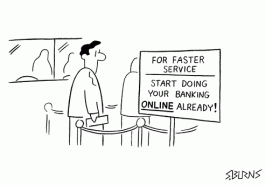
Virtual communities are described as groups in which “people with common interests, goals, or practices interact to share information and knowledge, and engage in social interactions” (Chiu, Hsu, & Wang, 2006, p. 1873). Community of practice (CoP) is a concept pertaining to groups that are “formed by people who engage in a process of collective learning in a shared domain of human endeavor” (“Introduction to Communities”, n.d.). CoPs provide an effective lens in examining the development and exchange of knowledge in organizations.
Although there are many reasons that motivate individuals to join online communities (social, educational, etc.), the Harris Poll from Business Week found that 42% (Chiu et al., 2006, p. 1872) of virtual community members claim their involvement is professionally- related and 35% join groups for personal or social reasons. Organizations are becoming increasingly aware of the benefits associated with virtual communities: “Driven by a knowledge economy, many organizations have recognized knowledge as a valuable intangible resource that holds the key to competitive advantages” (Chiu et al., 2006, p. 1872). Consequently, the value and growth of virtual communities depends on their ability to facilitate social interaction and knowledge sharing.

Chiu et al. (2006) integrate Social Cognitive Theory and Social Capital Theory to examine the motivational factors that affect professional virtual groups. Technological advancements in communication and information systems have had a globalizing effect on CoPs. Unlike conventional communities, CoPs lack a concrete reward system that reinforces “the mechanisms of mutual trust, interaction, and reciprocity among individuals” (Chiu, 2006, p. 1876). In their study, Chiu et al. (2006) identify outcome expectations and social capital as two main factors that impact individual motivation in professional groups: social capital and outcome expectations.
Broadly defined, outcome expectations are the predicted consequences of a given performance. Outcome expectations affect group collaboration because “individuals are more likely to engage in the behavior that they expect to result in favorable consequences” (Chiu et al., 2006). Social capital refers to “the network of social connections that exist between people, and their shared values and norms of behavior, which enable and encourage mutually advantageous social cooperation” (“Social capital,” n.d.). Social capital has a major effect on a group’s knowledge base. Chiu et al. (2006) explain that understanding the role of social capital in virtual communities can “lead to greater level of knowledge sharing in terms of quantity or quality” (p. 1884).
 A U.S. bank consumer study (2015), shows that “70% of consumers across all generations (85% of millennials) believe banks that are current with the latest technology are more trustworthy.” Although consumers clearly value technology when it come to their banking, 4 out of 5 Americans claim that “when it matters most, they value people more” (“U.S. Bank,” 2015). Gareth Gaston, executive vice president of U.S. Bank explains that “people want more from their banks than apps—they want advocates.”
A U.S. bank consumer study (2015), shows that “70% of consumers across all generations (85% of millennials) believe banks that are current with the latest technology are more trustworthy.” Although consumers clearly value technology when it come to their banking, 4 out of 5 Americans claim that “when it matters most, they value people more” (“U.S. Bank,” 2015). Gareth Gaston, executive vice president of U.S. Bank explains that “people want more from their banks than apps—they want advocates.”
The study’s findings show that while many traditional practices (writing checks, physically depositing pay checks, etc.) have declined dramatically in the last decade, nearly 80% of consumers are afraid of bad customer service from banks that “go completely digital” (“U.S. Bank, 2015). Dominic Venturo, chief innovation officer at U.S. Bank, explains that “Consumers are challenging the industry to meet them where they are, and that requires a mastery of the delicate balance between convenience, security, and personalized engagement” (“U.S. Bank, 2015). This study shows that while members appreciate the ease and accessibility of banking apps, they still desire social capital—in the form of social connection and cooperation.
 As traditional banking practices continue to decline, do you think banks will be able to strike a balance in creating virtual communities that provide both convenience and good customer service? Or do you think consumers will learn to become more comfortable with banks that have “gone completely digital”?
As traditional banking practices continue to decline, do you think banks will be able to strike a balance in creating virtual communities that provide both convenience and good customer service? Or do you think consumers will learn to become more comfortable with banks that have “gone completely digital”?
References
Chiu, C., Hsu, M., & Wang, E. (2006). Understanding Knowledge Sharing In Virtual Communities: An Integration of Social Capital and Social Cognitive Theories. Decision Support Systems, 1872-1888.
Social-capital. (n.d.). Collins English Dictionary – Complete & Unabridged 10th Edition. Retrieved November 15, 2015, from Dictionary.com website: http://dictionary.reference.com/browse/social-capital
U.S. Bank Consumer Study Raises New Perspective on How Banks Balance Technology with a Human Touch. (2015). Retrieved November 17, 2015, from http://www.businesswire.com/news/home/20151116005811/en/U.S.-Bank-Consumer-Study-Raises-Perspective-Banks

